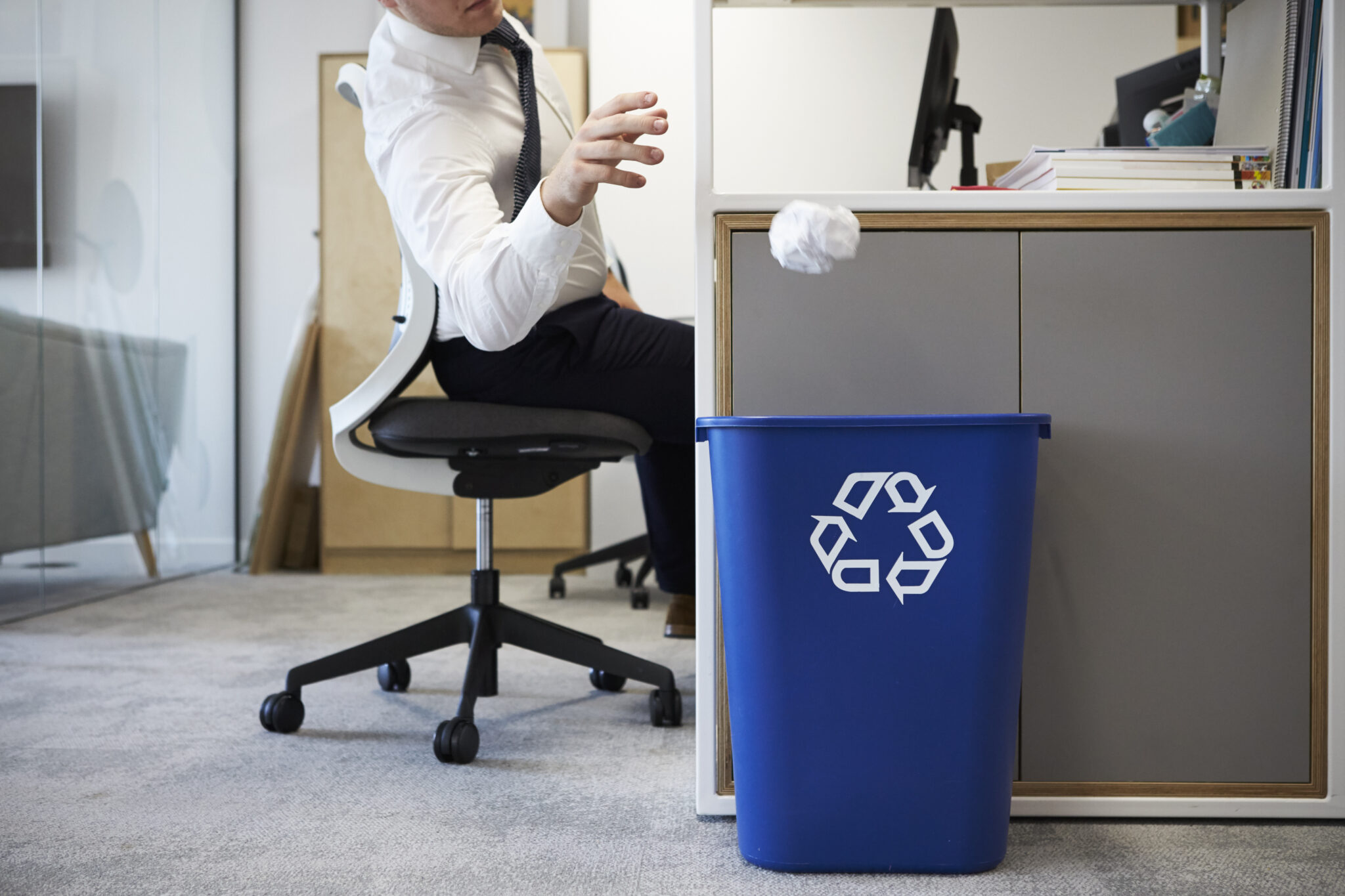
Clearly, it’s better, and cheaper to recycle, but for small businesses that are prohibited from using civic amenities and residential recycling schemes, and are too small to use the services of commercial providers, recycling business waste is not always a practical solution.
Depending on what your organisation does, you may have a lot of business waste or a very small amount. Whatever the volume, you should regularly review your waste management strategy to ensure you are doing everything you can to minimise waste. Alongside the environmental benefits, you’ll find that a good waste management strategy will deliver cost savings and efficiencies for your business.
In February 2011, the Waste (England and Wales) Regulations introduced the legal requirement for organisations to apply the waste hierarchy when dealing with waste. This means organisations must take all reasonable steps to prevent and reduce waste and where it does arise, demonstrate that they have dealt with it in the most environmentally friendly way possible. The waste hierarchy ranks waste management options according to their effects on the environment.
Waste Prevention
At the top of the waste hierarchy is waste prevention. Focusing on reducing the amount of rubbish that your company generates at source, prevention requires a review of your waste disposal processes, to identify ways you can minimise the impact your refuse has on the environment. This should result in the added benefits of cost savings, increased resource efficiency and improved environmental credentials (which can be cited when competing for new business).
Re-Use
We’ve lived in a throwaway society for a while now. It’s often cheaper to replace equipment than mend it and so many things are designed and manufactured in such a way that it is difficult to fix them. Ultimately things have to change, and whilst it won’t happen overnight, we can do our utmost to make sure things last by cleaning them and maintaining them. Investing in equipment that is built to last will be cost-effective in the long term, though will, unfortunately, require higher initial outlay.
Recycling
Just because it’s no good to you, doesn’t mean it’s rubbish. One man’s trash is another man’s treasure. Whether it’s a donation to a local school or youth club of defunct but still useable IT equipment or office furniture to a local charity, you can help others and gain some kudos for your business at the same time.
If you can’t find a home for it check with your local council as to how you can recycle things and if there aren’t any schemes in place get in touch with local trade organisation, chambers of commerce, networking groups and see what you can make happen.
Recovery
This one depends on the type of rubbish and the facilities available in your region, so we’d recommend some online research.
Disposal
This is the one we’re ultimately trying to avoid. Recycling group Envirotech says that 60% of all UK rubbish that ends up on landfill could be recycled. Whilst this figure includes domestic waste it does go to show that we still have a long way to go, but along with our specialist partners, we can help you work out a strategy.
Give it a go and sing from the rooftops
Chances are your company, whatever its size, has a Corporate Social Responsibility (CSR) programme in place. As part of that programme, could you be doing more about waste and recycling? Whether you give it its own page on your website or mention it on your social media page, there is no reason why you shouldn’t talk about what you do for the environment. If nothing else it may encourage other businesses to do the same, but in reality, it will give your business more credibility and demonstrate your commitment to a worthy cause.
Waste management isn’t a voluntary ‘nice-to-do’; there are regulations affecting UK businesses that ensure waste is disposed of without endangering human health or damaging the environment and encourage reuse and recycling. If you’re not sure what regulations affect you, visit https://www.gov.uk/topic/environmental-management/waste for more information.
Atkins Gregory is able to advise and assist customers with their waste management requirements, including refuse disposal and recycling. For more information, contact us.